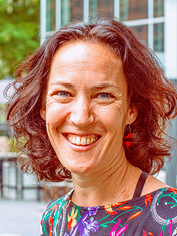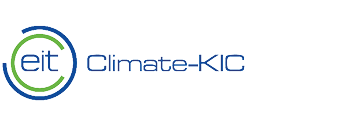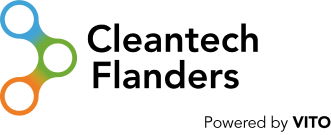The EIT’s climate innovation community brings together hundreds of organisations to draw on innovation, often in the field of cleantech, to tackle global warming and safeguard Europe and the world from its consequences. In Belgium too, a highly diverse community is working on various initiatives aimed at systemic transformation.
The Climate-KIC (Knowledge and Innovation Community) of the European Institute of Technology (EIT) has supported over 4,500 companies in more than 50 countries in and outside the EU in their ambition to use innovation – whether in technology, policy, finance, civic engagement or social aspects – to make the economy and society climate-friendly while safeguarding it from global warming. This is without losing sight of important aspects such as social justice and inclusiveness.
Ultimately, the goal of EIT Climate-KIC is to contribute to the much-needed paradigm shift from a linear system of industrial production to a circular, regenerative model. This will be achieved by drawing on the knowledge and expertise of more than 400 organisations (large and small companies, governments, knowledge institutions, NGOs). For example, EIT Climate-KIC intends to help bring about much-needed innovation and disseminate it throughout the community and beyond.
The climate innovation community is also very active in our country. We can highlight four recent initiatives in this regard.
Climathon is a global programme that offers cities the opportunity to take highly concrete climate action. It was launched within EIT Climate-KIC from small groups of entrepreneurial and action-oriented citizens from different cities. They prepared a brainstorming exercise on local climate and sustainability challenges, with the aim of addressing them in highly concrete terms through innovative solutions.
In Leuven, citizens came together for 48 hours to look at five challenges on different themes, ranging from renewable energy supply in buildings to zero-emission urban transport to the fight against food waste.
ClimateLaunchPad is the world’s largest competition for green business ideas. The aim is to tap into the potential of cleantech ideas in the fight against global warming. In recent years, 15 companies (primarily start-ups) from Belgium have also taken part in the competition, not without success.
CO2ElectroRefinery is developing a production platform to use CO2 as a basic building block for high-end organic chemicals. The start-up is aiming to create an industrially relevant bio- and electrochemical system that can convert CO2 from flue gases into hydrocarbons and other organic components.
Health-e-Move is developing an app to assist users in their transition to more active outdoor mobility modes such as cycling and walking. The app works by presenting the benefits of these modes in a personalised, science-based way. Users gain insight into the air quality but also into their health benefits through physical exercise.
Smart up my water is aiming to make 1/5 of the existing hot water boilers in Flanders ‘smart’ by 2026, without the owners or users having to pay for it. The advantage of a smart boiler is that it can automatically use the surplus from the generation of renewable energy – for example, from solar panels on the roof.
ClimAccelerator is a global initiative that supports start-ups in developing, accelerating and scaling up climate innovations. The ‘accelerator programme’ works both thematically and locally. In recent years, various Flemish start-ups have also taken part, often with success.
Faro 360 supplies small recycling plants for plastic waste in developing countries. The initiative provides local training in waste management, organises awareness campaigns and clean-up operations, and maintains a global network for cooperation and exchange of knowledge and expertise.
Staenis BVBA has developed an affordable building product that can be used for the construction of sustainable, circular floors.
Sumaqua provides customised advice and solutions for water management, for watercourses but also for cities, agriculture and industry. The provided service is based on a combination of big data, smart monitoring and state-of-the-art modelling.
Strategic water offers solutions for water and other cleaning technologies based on machine learning. This allows the technology to work more efficiently: more cheaply and with fewer emissions.
Deep Demonstrations are large-scale projects that in turn are thematically or locally inspired. Leuven is one of 15 European cities participating in the Healthy, Clean Cities theme. The city has drawn up an ambitious roadmap to become climate-neutral by 2050, with key interim milestones in 2025 and 2030. This is not something for the future, as participation in the EIT Climate-KIC project has already borne fruit. For example, the number of inhabitants using a bike instead of a car has increased by as much as 44% in the past year.

Savitri Groag, Head of Innovation Benelux
“By connecting local innovations to global demand and the other way around, EIT Climate-KIC offers opportunities to jointly scale, experiment and learn to accelerate the transformational change needed for climate. I am happy to see Belgium partners being actively involved therein”



